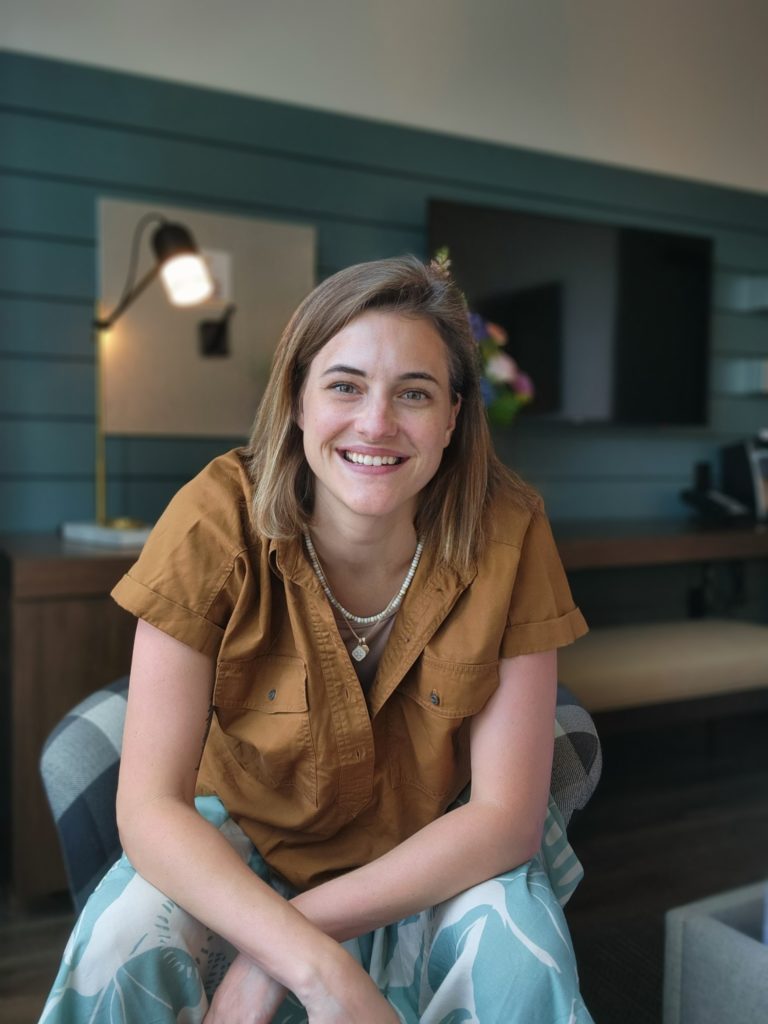Note: This is the first piece in a two-part series on GRAND’s success with the CCBHC model of care. Read part two here.
The journey to mental well-being is often hindered by outdated approaches, limited resources, or convoluted pathways to care. But where other mental health organizations may see obstacles, GRAND Mental Health in Oklahoma sees opportunities.
For GRAND, innovation isn’t just a buzzword; it’s a necessity for overcoming the barriers faced by those in need of care. That’s exactly why they’ve embraced the Certified Community Behavioral Health Clinic (CCBHC) model—a fresh take on mental health service delivery that’s quietly making waves across the nation.
3 Key Ingredients for CCBHC Success
The mental health landscape is almost unrecognizable compared to 50—or even 20—years ago. And the evolution is far from finished. Today’s mental health field is changing rapidly, building on past foundations while stretching to new heights of innovation and comprehensive treatment. At the forefront of this transformation are CCBHCs like GRAND, which are revolutionizing the way we deliver mental health services at scale.
For the leadership team at GRAND, becoming a CCBHC wasn’t a spontaneous idea. It was a deliberate choice requiring resilience, forward thinking, and a commitment to community service.
According to Josh Cantwell, GRAND’s COO, the successful transition to a CCBHC model hinged on three key ingredients:
- a visionary,
- a champion, and
- a unified workforce.
The visionary for GRAND was CEO Larry Smith, a seasoned mental health professional who foresaw the necessity for change. “He’s been in the field for many years, and he’s seen what he knew had to be a transition at some point in time to achieve what we wanted to achieve,” Cantwell explained. “So [he’s] that unwavering visionary, willing to take risks.”
To pull off a transformation of this scale, though, GRAND needed a champion with decision-making power. That was the Oklahoma Department of Mental Health and Substance Abuse Services—specifically, Commissioner Carrie Slatton-Hodges. “This story can’t be told without that relationship,” Cantwell said. “The champion who’s willing to say when they see the potential of something, and support it, and allow us to do new things.”
“This story can’t be told without the champion who’s willing to see the potential of something, and support it, and allow us to do new things.”
– Josh Cantwell, COO of GRAND Mental Health
These key players, combined with a strong workforce who were fully bought-in to the mission and trained to push it forward, has led to the success of the GRAND model and GRAND Mental Health’s recognition as one of the premier CCBHCs in the nation.
The Freedom to Focus on Care
In the past, community behavioral health clinics, including GRAND Mental Health, found themselves confined within a restrictive framework. This system prioritized patient intake over holistic care, and traditional funding models reinforced a truncated approach to treatment. Essentially, their hands were tied—and opportunities for innovation and optimization were limited by what could be billed and paid for. Their aspirations to break free from these constraints and truly serve their communities were mere pipe dreams.
But then, an opportunity arose to reshape their destiny. Established under the Excellence in Mental Health Act in 2014, the CCBHC model is designed to address the challenges of mental health treatment in the 21st century.
CCBHCs offer a comprehensive, community-centered approach that integrates both mental and physical healthcare. They aim to break down barriers and make treatment accessible to all—regardless of financial status—by providing services like 24/7 crisis care and interventions tailored to diverse age groups, cultures, and subpopulations. Because CCBHCs are more flexible and inclusive than traditional community mental health models, they play a vital role in addressing overlooked needs.
For GRAND Mental Health, the journey to becoming a CCBHC transformed their entire approach to mental health and freed service delivery from payment limitations once and for all. This marked a major turning point for GRAND—a chance to focus on improving care for their community with the freedom to do what worked, not just what paid.
The End of Payment Constraints with PPS-2
As part of their transition to the CCBHC model, GRAND had to choose between two available payment structures: Prospective Payment System 1 (PPS-1) and Prospective Payment System 2 (PPS-2). PPS-1 provides a per-member, per-day rate—while PPS-2 offers a per-member, per-month rate. GRAND’s choice wasn’t just about financial structures; it was about fundamentally changing their approach to care.
By selecting the PPS-2 model, GRAND was free to develop practices and services that—though not directly tied to a specific payment—helped them control their overall costs and, more importantly, enabled them to focus on population-level health outcomes. The goal was clear: work toward a real return on investment for every dollar put into this model while simultaneously providing high-quality, effective care.
PPS-2 inspired GRAND to strategize and problem-solve in ways they couldn’t prior to becoming a CCBHC. They set audacious, outcome-oriented goals, such as dramatically reducing inpatient hospitalization rates. This meant that only the most severe cases with no other options would end up inpatient—a move that, while challenging, reflected a new level of commitment to their community and the provision of appropriate care.
This represented a brand-new mindset for GRAND Mental Health that Cantwell sums up in three simple steps:
- Solve problems.
- Create new, smaller problems.
- Then solve those, too.
As he puts it, “Everything we solve creates other problems, but the problems that are created have to be smaller than the problems we solved—that’s success.”
A Full Commitment to Change
It’s important to understand that the road to becoming a CCBHC isn’t always smooth. But, even amid all the unexpected challenges, there are striking achievements that reinforce the power and potential of this model. At least, that’s how it happened for GRAND.
As Cantwell shared, “The biggest challenge is going to be motivating other people to see the potential of the model.” For many, the transformation to a CCBHC model is a daunting proposition—an undertaking that requires full trust and commitment. As he put it, “You can’t ‘kind of’ do CCBHC. You are a CCBHC.”
“You can’t ‘kind of’ do CCBHC. You are a CCBHC.”
– Josh Cantwell, COO of GRAND Mental Health
One of the core challenges GRAND faced was ingraining the CCBHC philosophy into every aspect of their operations. Risk, fear of change, and increased workload deter many from taking the leap. To be successful, the entire organization had to embrace change without hesitation.
Staffing proved especially challenging. The call to increase care access—one of the main components of the CCBHC certification criteria—meant hiring more people, yet the state of the workforce presented significant obstacles.
GRAND’s response? A radical prioritization of employee well-being—an effort that has put GRAND in the running to be named one of Newsweek Magazine’s top 100 Most Loved Workplaces. “We know that there’s always a sacrifice for growth,” Cantwell explained. “But we didn’t want it to be the happiness of the people who work for us.”
The most surprising aspect of GRAND’s CCBHC journey, according to Cantwell, is the kind of national attention they’ve garnered. They weren’t chasing the spotlight—it simply found them as they went about “doing the right thing.” Their mission was to provide high-quality services in a new environment—a goal they simply considered their duty, but one that landed them in the headlines nonetheless, for both their mental health work and their workplace culture.
As their story reached more people in the mental health community, GRAND Mental Health’s CCBHC journey evolved into something larger than themselves. Cantwell sees it as a part of a broader movement that’s changing the face of mental healthcare in the US, describing it as a “once-in-a-lifetime chance” and urging other agencies nationwide to seize this opportunity. With collective effort, he believes, the undeniable benefits of the CCBHC model will prove transformative for the entire mental health community.
The Future of Care Innovation
Shifting to a CCBHC model might feel overwhelming, but it’s a big step forward for community mental health. People like Josh Cantwell and organizations like GRAND Mental Health lead by example, sharing their wisdom and insight to create a smoother path for those who follow. Plus, companies like Eleos are ready to help with technology solutions built for this new era, lightening the load on providers and leadership.
Ready to experience the power of purpose-built behavioral health technology? Request a demo of Eleos Health to see all the ways we support care innovation.

